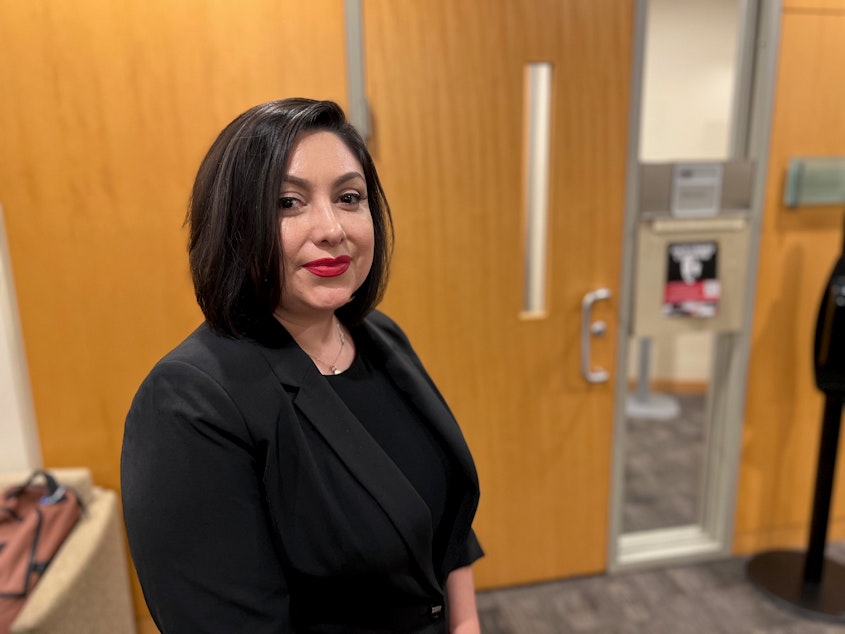Anti-Asian hate is underreported in King County. New community gatherings aim to change that

Federal and local prosecutors and advocates for the Asian American community are encouraging crime victims to come forward and file reports, with the goal of reducing hate crimes.
Over the summer, Christopher Koa, a law professor and the organizer of a recent forum at Seattle University, had his home broken into when he and his family were away.
Around the same time, his neighbors throughout South Seattle — all of whom are Asian American — were robbed at gunpoint of tens of thousands of dollars and tasered. From his point of view, his community is being deliberately targeted.
Koa is an outlier in these cases, as he didn’t experience any face-to-face violence like the others. But he feels driven to find a way to connect Asian American community groups with federal and local prosecutors through events like the community gathering he hosted on Wednesday night. He thinks communities need better information about staying safe.
“The guidance and statements coming from the police weren’t helpful,” Koa said, adding that’s why he’s taking matters into his own hands.
Investigators are still determining if what Koa’s neighbors experienced qualify as hate crimes as they build cases against people they’ve arrested, and search for more suspects.
Sponsored
In addition to race, the age of older home robbery victims may or may not factor into charging decisions.
"Hate crimes are unique in that we have to prove the motive beyond a reasonable doubt at the time the case is charged," said Casey McNerthney, a spokesperson for the King County Prosecuting Attorney’s Office in an email. "That legal standard is much higher than what many folks realize, in part because victim age is not listed in the hate crime statute."
In 2022, the Federal Bureau of Investigations recorded 530 hate crimes in the state of Washington — 50 of those were anti-Asian incidents. That’s down from 2021’s numbers of 59 anti-Asian hate crimes, but the last three years have seen an overall increase in the number of documented hate crimes in Washington state since 2020.
Yessenia Manzo is a hate crimes prosecutor for King County. They spoke at a Koa’s event at Seattle University, saying they suspect the uptick reflects increased reporting, which is the result of a greater awareness, spurred by anti-Asian hate incidents during the pandemic.
Most, if not all of the hate crimes Manzo works on — around 40 at any given time, which include race, but also gender identity – happen in Seattle and few are reported elsewhere in King County, they said.
Sponsored
“Right now, the disparity is just so huge,” they said. “I only have a few cases in South King County… and I don't think it's a coincidence that SPD is the only one that has a hate crimes detective.”
Manzo suspects hate crimes could be underreported in other parts of King County. They said these cases don’t have to be extremely violent events to be prosecuted, and their office doesn’t have to prove that a person is a lifelong bigot to charge them with a hate crime.
This year, King County considered funding a hotline for hate crimes, which would have worked alongside its Coalition Against Hate and Bias to document instances of bias and hate, but didn’t include it in its recent budget. Regardless, coalition partners like the Chinese Information and Service Center — which was one of the sponsors of Koa’s lecture at Seattle University — are still documenting reports of hate and bias.
Looking to the future, Koa said his goal is to connect community members and organizations with legal and government groups that can help with these cases. He plans to hold more community gatherings in the coming months with the hope of connecting with communities in the southern parts of Seattle and beyond.




